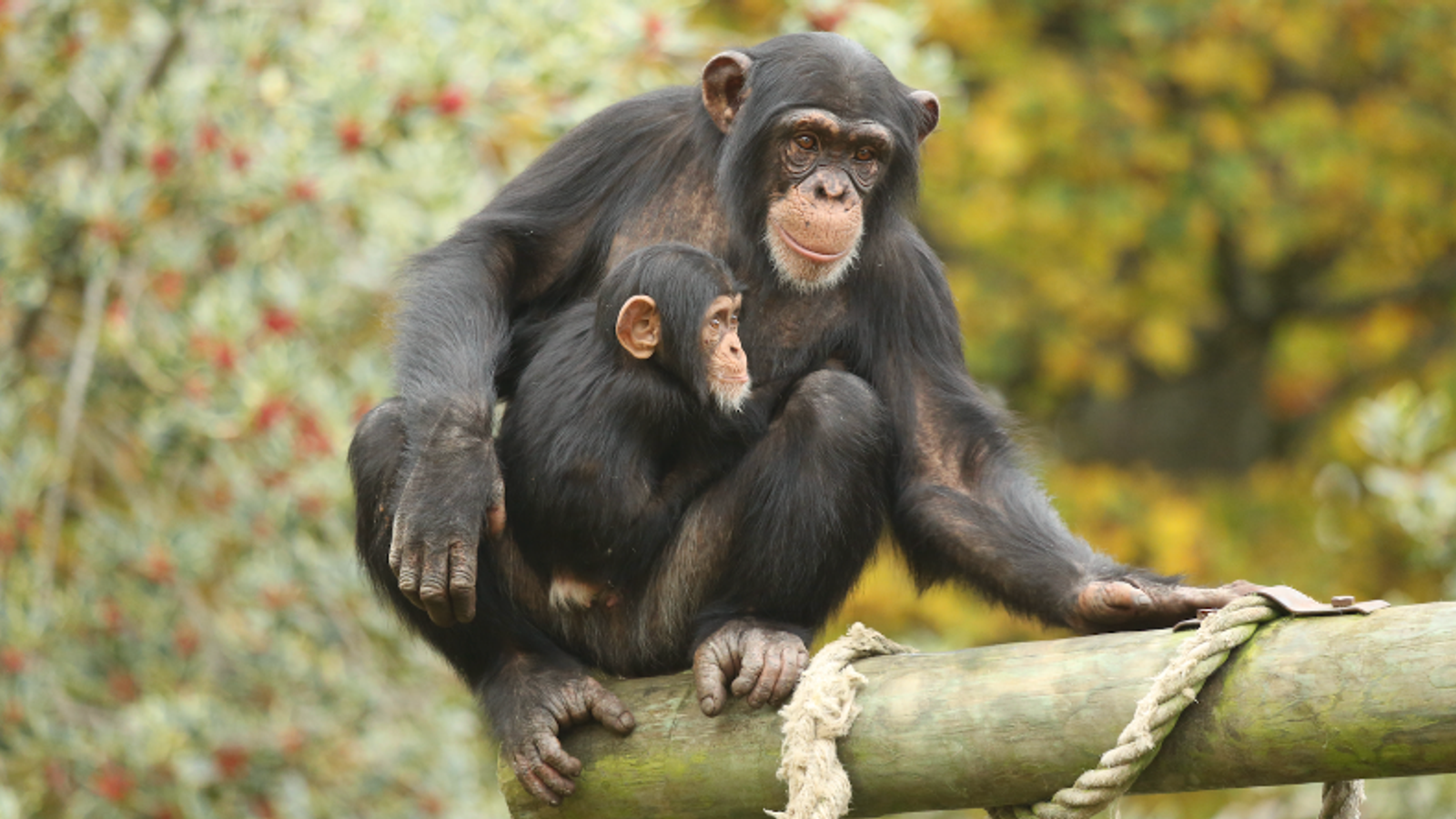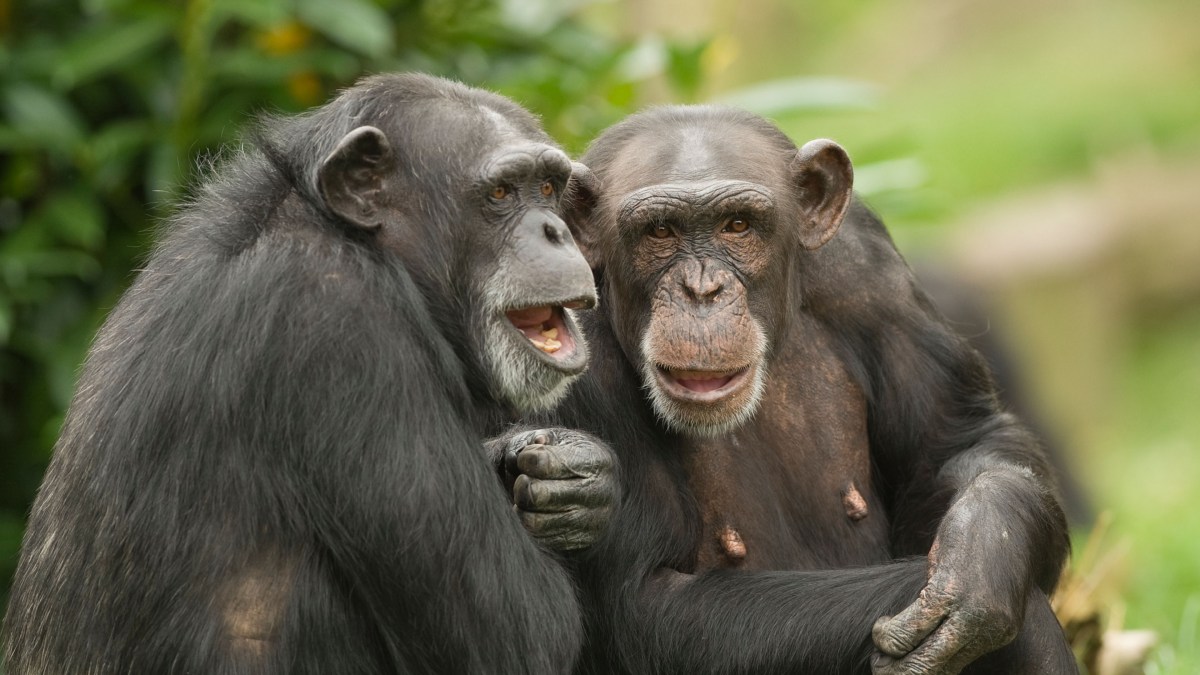Apes Recognize Old Friends And Family After Decades Apart, Research Says
A new study shows that apes recognize old friends after decades apart. This is the longest-lasting social memory ever found in an animal other than a human. Christopher Krupenye said that working with apes and noticing that they remembered him years after the last time they saw each other sparked the study.
Author:Karan EmeryReviewer:Daniel JamesDec 19, 20239.8K Shares186.1K Views

A new study shows that apes recognize old friends after decadesapart. This is the longest-lasting social memory ever found in an animal other than a human.
A studyreleased Monday in the Proceedings of the National Academy of Sciences found that chimpanzees and bonobos could recognize photos of former groupmates more than 25 years after seeing them in person for the last time. Photos of old friends got an even stronger response.
Christopher Krupenye, senior author and an assistant professor of animal cognition at Johns Hopkins University, said that working with apes and noticing that they remembered him years after the last time they saw each other sparked the study.
Apes Recognize Old Friends After Decades
We all have trouble remembering the names of our high school friends and that friend of a friend you met last week. Don't feel bad about it. While this may not be true for our other great ape cousins, they may remember a nice face for a very long time.
A study released Monday in the journal Proceeding of the National Academy of Sciences says that chimps and bonobos, which are the closest living relatives of humans, seem to remember old friends or family members even if it's been more than 25 years since they last saw them. According to the researchers, this study shows that apes can remember other people for a long time. They also think that this skill may have helped humans develop complex social structures and cultures.
Christopher Krupenye, senior author and assistant professor of psychology at Johns Hopkins University, said:
“„Chimpanzees and bonobos recognize individuals even though they haven't seen them for multiple decades. And then there's this small but significant pattern of greater attention toward individuals with whom they had more positive relationships. It suggests that this is more than just familiarity, that they're keeping track of aspects of the quality of these social relationships.- Christopher Krupenye
The study's lead author, comparative psychologist Laura Lewis at the University of California, Berkeley, said this in a press release.
“„We tend to think about great apes as quite different from ourselves but we have really seen these animals as possessing cognitive mechanisms that are very similar to our own, including memory.- Laura Lewis
The researchers worked with chimpanzees and bonobos at the Kumamoto Sanctuary in Japan, the Planckendael Zoo in Belgium, and the Edinburgh Zoo in Scotland.
Then, the researchers, who included co-author Christopher Krupenye from Johns Hopkins University, took pictures of apes that weren't at the zoo anymore. These were people that the other apes hadn't seen in at least nine months and maybe even 26 years.
The researchers also wanted to know if any of the current ape residents had any relationships with the ones who had left. They wanted to know if the current ape residents had any good or bad thoughts about those relationships.
The study also makes it more likely that the apes may miss their old friends and family and that, to use a common saying, the absence makes the heart grow fonder. The experts say that they want to find out more about how important these social memories are to great apes' emotions and whether they remember things from the past in addition to other people.
“„This work clearly shows how fundamental and long-lasting these relationships are. Disruption to those relationships is likely very damaging.- Christopher Krupenye
Chimpanzees and bonobos form deep, lasting social bonds, which can teach us about human cognition. It also shows that these fragile species live complicated, emotional lives that we are just starting to understand.
Final Thoughts
An exciting new study from the University of California, Berkeley, and Johns Hopkins University has shown that chimpanzees and bonobos can know family and friends even if they haven't seen them in decades. It turns out that humans may not be that different from other apes after all.
Memory loss in humans can start as early as 15 years, but people have been able to remember things up to 48 years after being apart. Long-term memory is similar between humans and apes, which means they both came from the same parent between six and nine million years ago. It's not clear to the experts what was going on in the apes' minds while they looked at these pictures. That's what they want to find out in their future study.

Karan Emery
Author
Karan Emery, an accomplished researcher and leader in health sciences, biotechnology, and pharmaceuticals, brings over two decades of experience to the table. Holding a Ph.D. in Pharmaceutical Sciences from Stanford University, Karan's credentials underscore her authority in the field.
With a track record of groundbreaking research and numerous peer-reviewed publications in prestigious journals, Karan's expertise is widely recognized in the scientific community.
Her writing style is characterized by its clarity and meticulous attention to detail, making complex scientific concepts accessible to a broad audience. Apart from her professional endeavors, Karan enjoys cooking, learning about different cultures and languages, watching documentaries, and visiting historical landmarks.
Committed to advancing knowledge and improving health outcomes, Karan Emery continues to make significant contributions to the fields of health, biotechnology, and pharmaceuticals.

Daniel James
Reviewer
Daniel James is a distinguished gerontologist, author, and professional coach known for his expertise in health and aging.
With degrees from Georgia Tech and UCLA, including a diploma in gerontology from the University of Boston, Daniel brings over 15 years of experience to his work.
His credentials also include a Professional Coaching Certification, enhancing his credibility in personal development and well-being.
In his free time, Daniel is an avid runner and tennis player, passionate about fitness, wellness, and staying active.
His commitment to improving lives through health education and coaching reflects his passion and dedication in both professional and personal endeavors.
Latest Articles
Popular Articles
